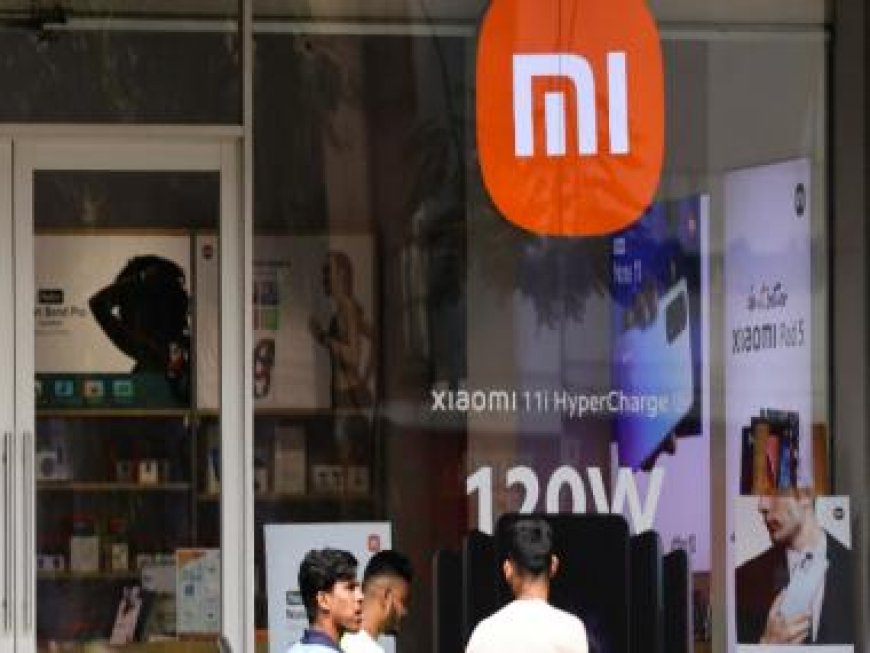Xiaomi on slippery slope: Mounting legal troubles, changing market force rethink of India strategy
Xiaomi on slippery slope: Mounting legal troubles, changing market force rethink of India strategy

Xiaomi has been forced to make some major strategic adjustments in the Indian market due to changing consumer preferences and increased regulatory scrutiny, which has resulted in a decline in its market leadership.
According to data from Counterpoint Research, Xiaomi’s market share in India dropped to 15 per cent in the first half of 2023, down from a leading position of 28 per cent in 2018.
Not premium enough, sloppy product line
Tarun Pathak, research director of devices and ecosystems at Counterpoint Research, pointed out that the shift in India’s smartphone landscape is primarily driven by increased consumer wealth. A “premiumisation trend” has favoured more expensive brands like Apple and Samsung Electronics, with Samsung now becoming India’s top smartphone supplier, holding 19 per cent of the market.
On the other hand, Xiaomi has historically focused on the mass market segment. However, as the premium market grows in India, the mass market segment, which Xiaomi targets, has started to shrink.
In response to these market changes, Xiaomi is revising its strategy in India. The company plans to streamline its phone offerings to prioritize 5G products, enhance customer experience, and concentrate on targeted sales through physical retail stores. Xiaomi’s President, Muralikrishnan B, indicated in a Bloomberg report that the company is adapting to these shifts.
Furthermore, Xiaomi’s Chief Marketing Officer, Anuj Sharma, acknowledged that the company has made some mistakes and has already made its product portfolio leaner, aiming to prepare for the upcoming 5G revolution in India. The move comes as Xiaomi faces challenges in regaining its market position amid the evolving dynamics of the Indian smartphone market.
Chinese-owned companies still dominate
According to Pathak, other China-based competitors like Vivo and Oppo have adopted several strategies to protect their market share in India. Some of these steps include providing better after-sales services, establishing physical retail locations, and utilizing local distributors. These efforts have enabled Vivo to surpass Xiaomi’s market share in India for the first time in the current year, as per Counterpoint data.
Even though Xiaomi is facing challenges in India, Chinese-owned companies as a whole continue to dominate the total smartphone market share in the country. Counterpoint reports that their combined market share has remained strong, reaching around 74 per cent in the first half of the current year, compared to 60 per cent in 2018. Despite individual setbacks for Xiaomi, the overall presence of Chinese smartphone manufacturers remains significant in the Indian market.
Xiaomi’s trouble with the law
Ongoing regulatory scrutiny in India remains a significant concern for Chinese tech companies operating in the country. Recently, Vivo’s offices were raided by Indian authorities, and assets worth US$59 million were seized from Vivo’s bank accounts. The company was accused of channelling profits outside the country to avoid taxes. Similarly, last year, Xiaomi faced accusations from India’s federal financial crime agency for suspicious remittance payments to foreign-based entities, leading to the seizure of funds worth over US$600 million.
Last week, India’s Ministry of Electronics and Information Technology disclosed details of a comprehensive probe into alleged tax evasion by Chinese phone manufacturers, with approximately US$1 billion in unpaid taxes since 2017. The Ministry reported that tax authorities had recovered 18 per cent of this amount so far.
In response to the regulatory challenges, Xiaomi India asserted its commitment to complying with local laws and regulations and stated that it is actively cooperating with authorities to address any concerns.
India has adopted a tougher stance on Chinese tech companies over the past few years, banning numerous Chinese apps and excluding Huawei Technologies and ZTE from participating in 5G trials in the country.
Despite the potential for fines and legal troubles resulting from tax evasion findings, Chinese phone manufacturers are likely to treat this as a cost of doing business in a lucrative market. Counterpoint’s Pathak suggests that these companies may quickly attempt to settle legal distractions and shift their focus to the larger market trends. Some companies might opt to further localize their business operations to address government concerns.
While the regulatory environment poses challenges, India’s smartphone market remains unique, with only about half of the population owning smartphones. The country is still driven by many first-time smartphone users, making it a critical market for global tech giants to focus on.
As the market dynamics continue to evolve, Chinese tech companies are likely to navigate the regulatory landscape while capitalizing on the growth potential in India’s vast and expanding smartphone market.
What's Your Reaction?



























































